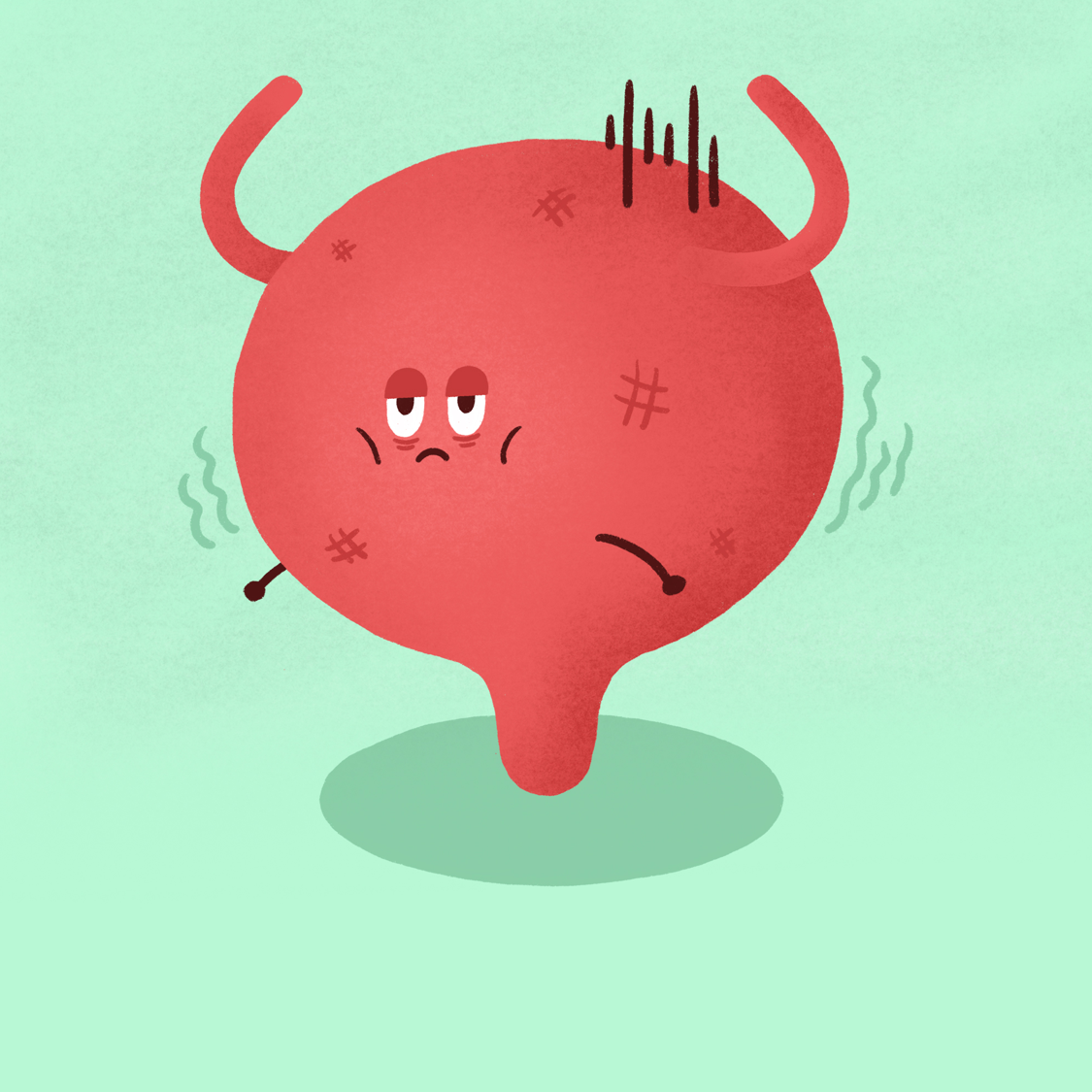Objectives
There is a saying that patience will make you sick. There is also a saying that patience is a virtue. So should you be patient or not? Be patient. Don’t be patient. Be impatient then be patient. Be patient then... Anyway. So what advice applies when it comes to our bladders? An inflammation of the bladder is known as cystitis or a UTI. Let’s take a moment to discuss our bladders, and what can go wrong.
A Problem to Discuss Outside the Bathroom
Cystitis
Cystitis is a medical term for the inflammation of the bladder due to an infection. It is an indication of a Urinary Tract Infection (UTI) that is common in women. According to the Health Insurance Review and Assessment Service, there were 1.56 million patients who received treatment for cystitis in South Korea in 2017 and about 95% of those were women.
It’s easy to consider cystitis as an annoying issue instead of a serious disease but some people experience severe pain and frequent recurrence which can have a real negative effect on their lives. Symptoms of cystitis should not be taken lightly as it can develop into a more serious disease such as a kidney infection.
What Are the Symptoms?
The major symptoms of cystitis are as follows. If any of the following symptoms are impacting your daily life, get medical help for treatment.
- Pain or a burning feeling when urinating
- Frequent urge to urinate
- Cloudy or strong-smelling urine
- Pain, pressure, and cramping in the lower abdomen
- Low fever and chills
- Blood in the urine
- Feeling sick and fatigued
Why is This Happening?
The most common cause of cystitis is an infection caused by E. coli. Enterococcus, Staphylococcus, and bacillus could also be the cause. These bacteria mostly cause infection by traveling from the urethra to the bladder, and would be considered a UTI. The following factors can also cause cystitis.
- Certain medications, particularly Cyclophosphamide or Ifosfamide used to treat cancer
- Radiation treatment on the hip area
- Long-term use of a urinary catheter
- Sensitivity to products such as feminine hygiene sprays, spermicides, or bubble bath
- Diseases such as prostatic hyperplasia, kidney stones, and diabetes
Quick and Safe Treatment
You may receive urinalysis when you visit the hospital due to discomfort from cystitis. Symptoms of cystitis are similar to vaginitis and doctors will try to find the exact cause of your pain. The following treatment will be given if diagnosed with cystitis.
- Medication
Most cases of cystitis can be treated easily by taking antibiotics for a short time. However, antibiotic-resistant bacteria may require intravenous (IV) antibiotics. If cystitis frequently recurs, a low dose of antibiotics for three to six months or an immune adjuvant for the bladder is administered.
- Surgery (Rare)
If abnormal anatomy is physically interrupting the stream of urine, surgery may be needed to correct this problem.
Avoiding Cystitis
The scariest thing about cystitis is that recurrence is frequent. It is generally known that one in four cystitis patients experience recurrence. Those who have experienced the pain of a UTI never want to go through it again. Let’s examine the precautions and bad habits to avoid.
-02.png?auth=U2FsdGVkX18qahFPNydpu2TaBXTRaGvN2WSRR5K%2BK8M%3D)
-01.png?auth=U2FsdGVkX18qahFPNydpu2TaBXTRaGvN2WSRR5K%2BK8M%3D)
Interstitial Cystitis
You’re not infected by bacteria but still have bladder pain? Interstitial cystitis is a disorder in which you experience bladder pain but there is no clear cause such as a urinary infection. Interstitial cystitis must be treated differently and requires continuous care as it is difficult to completely cure. The cause, symptoms, and treatment can differ for each patient, thus it is important to find the appropriate treatment for yourself. Take care of your bladder through various treatments that can relieve symptoms such as behavioral changes, medication, and surgery.
Summary
- Anatomy, social environment, and lifestyle can threaten women’s bladders.
- Don’t hold back urine or pain and get treatment in a timely manner.
